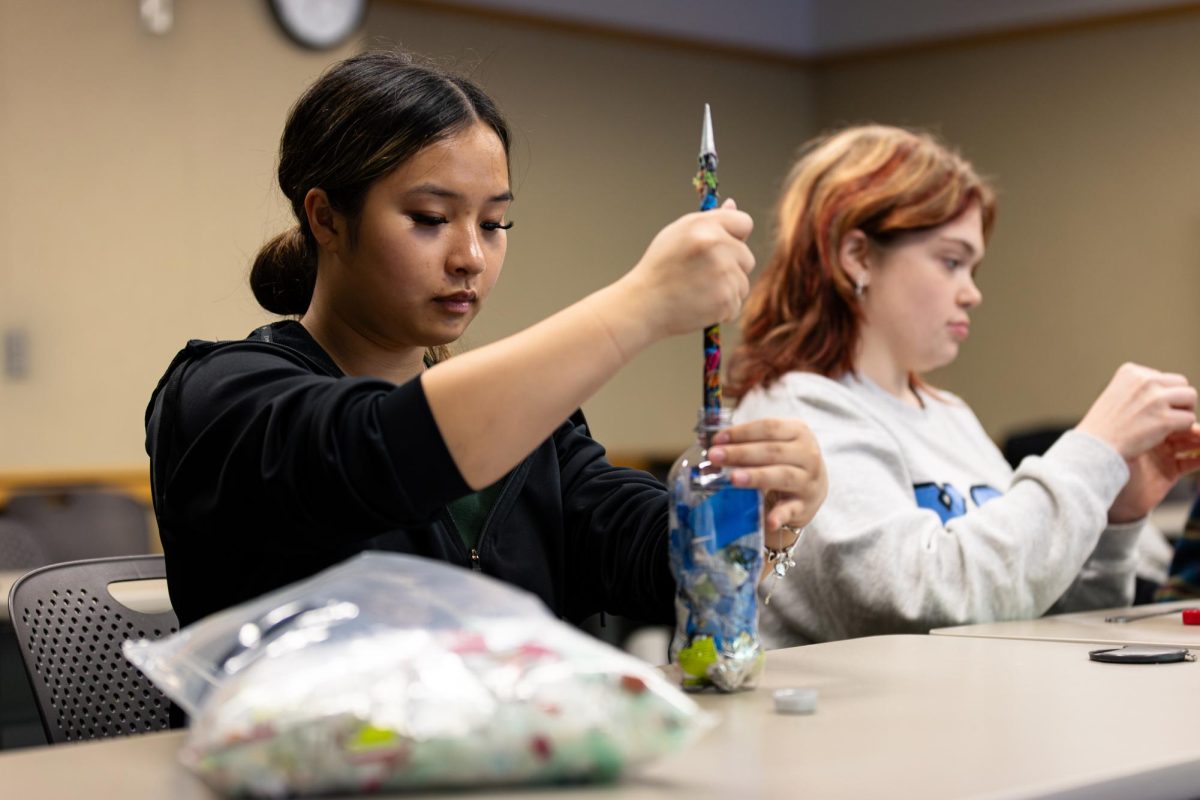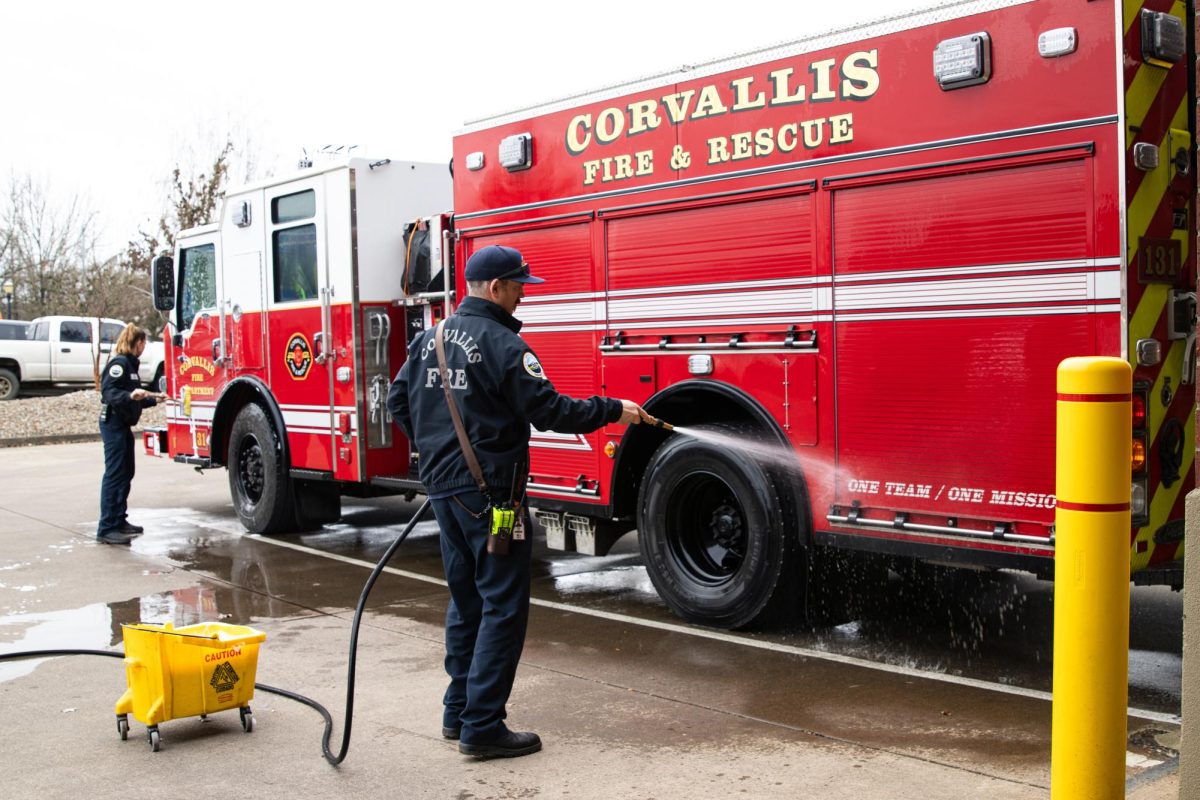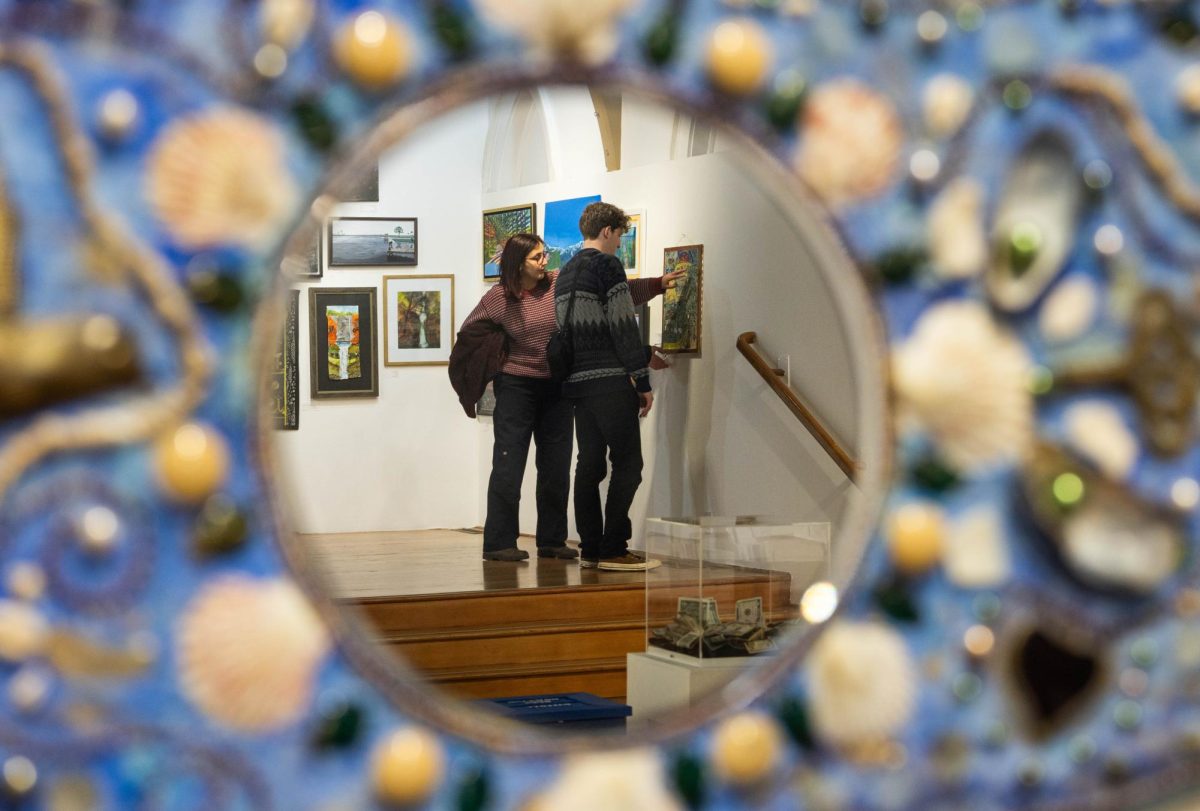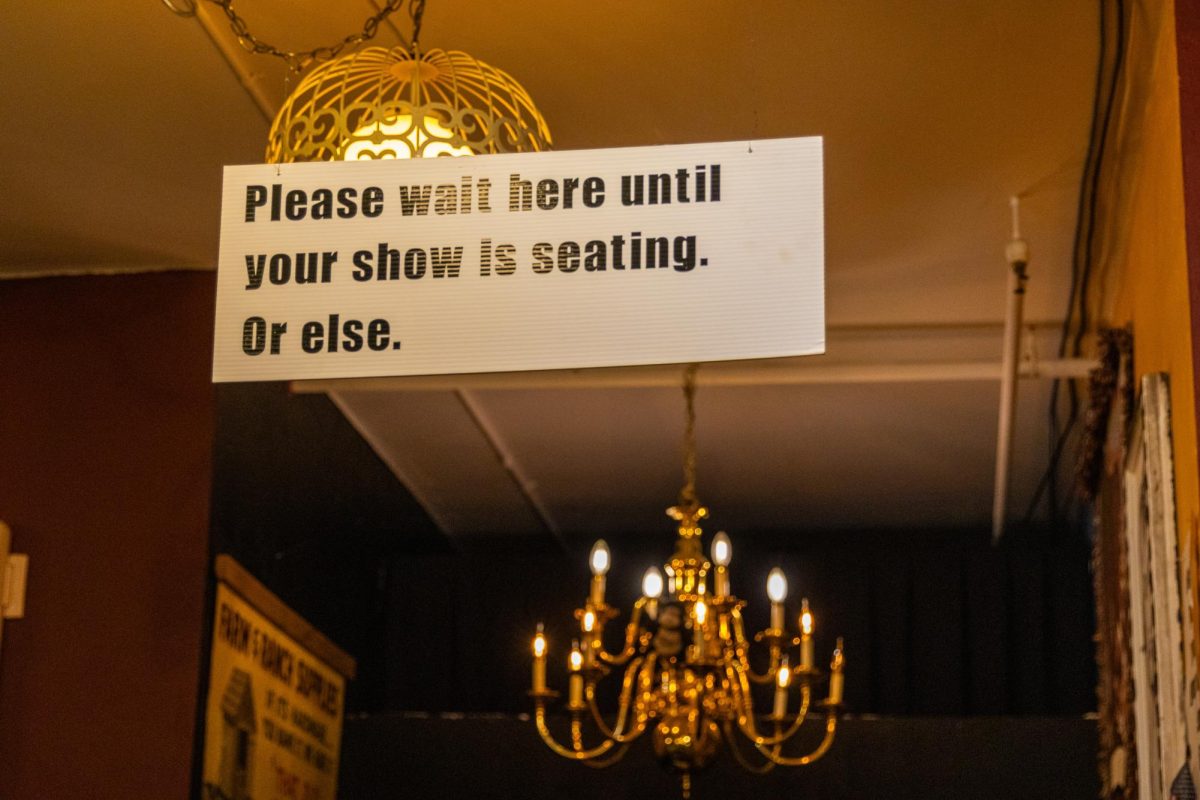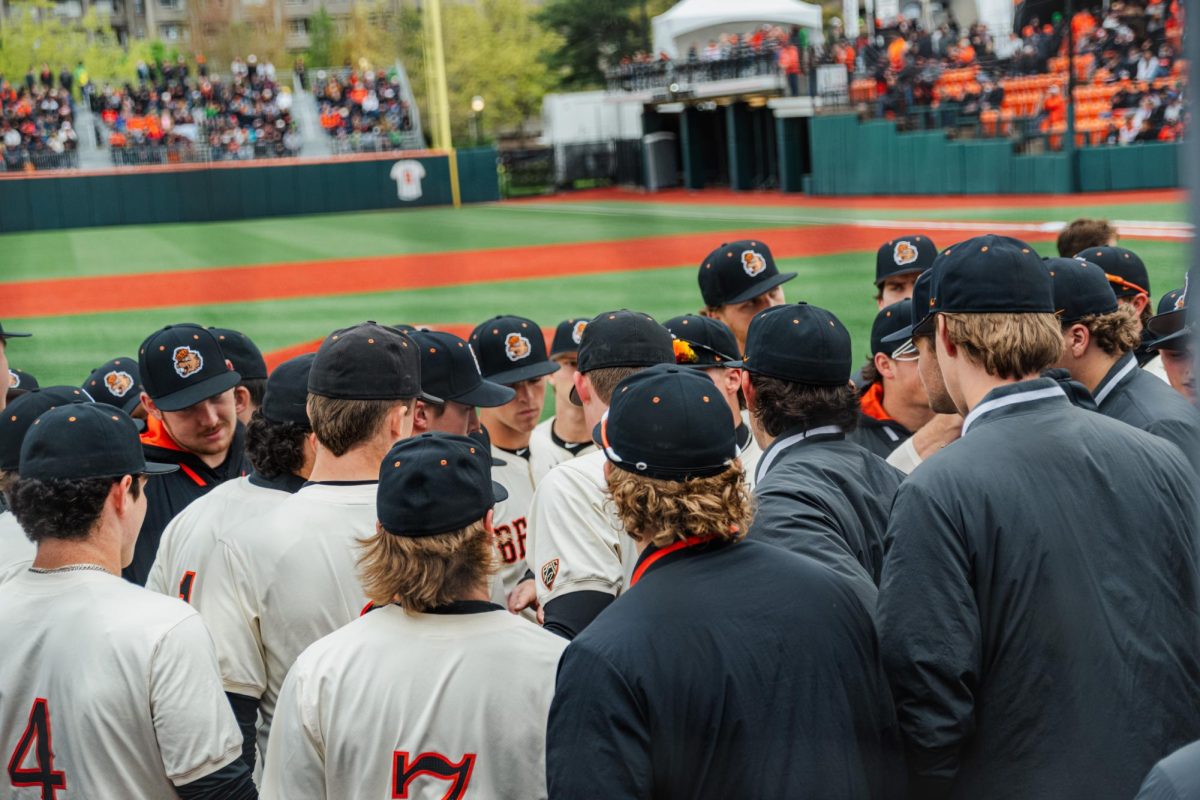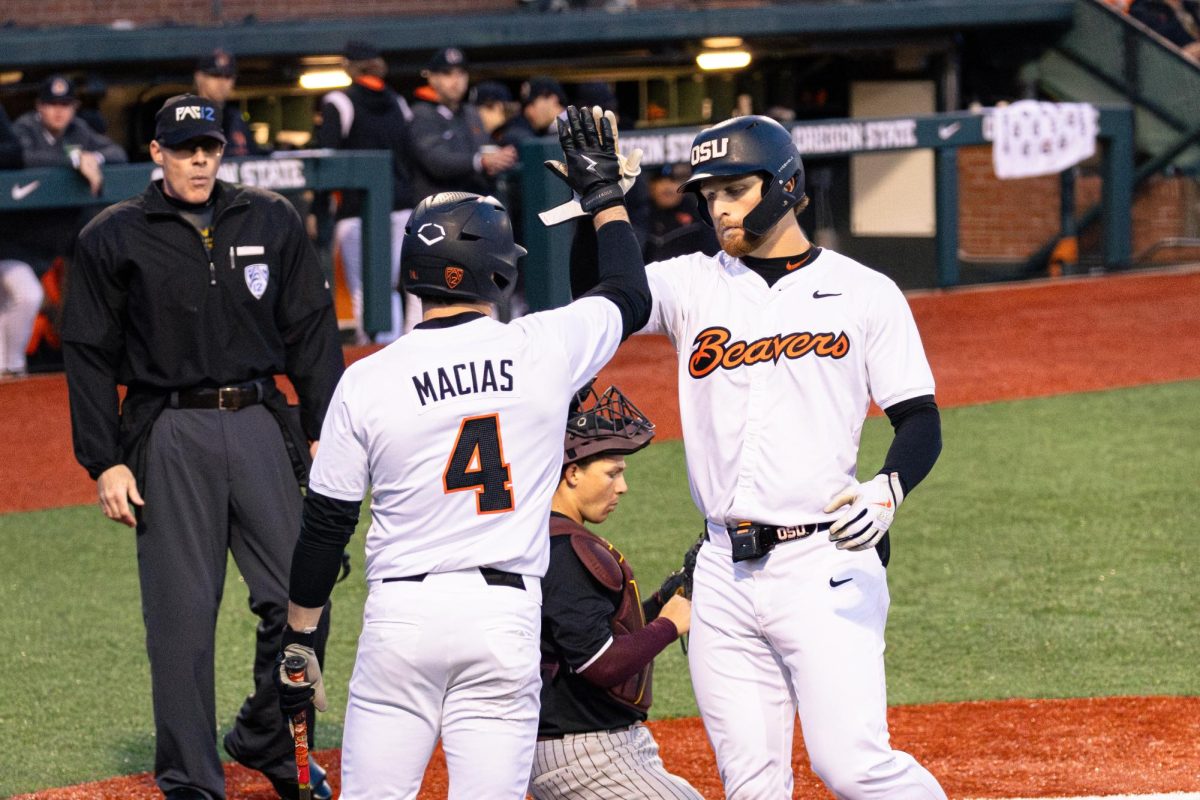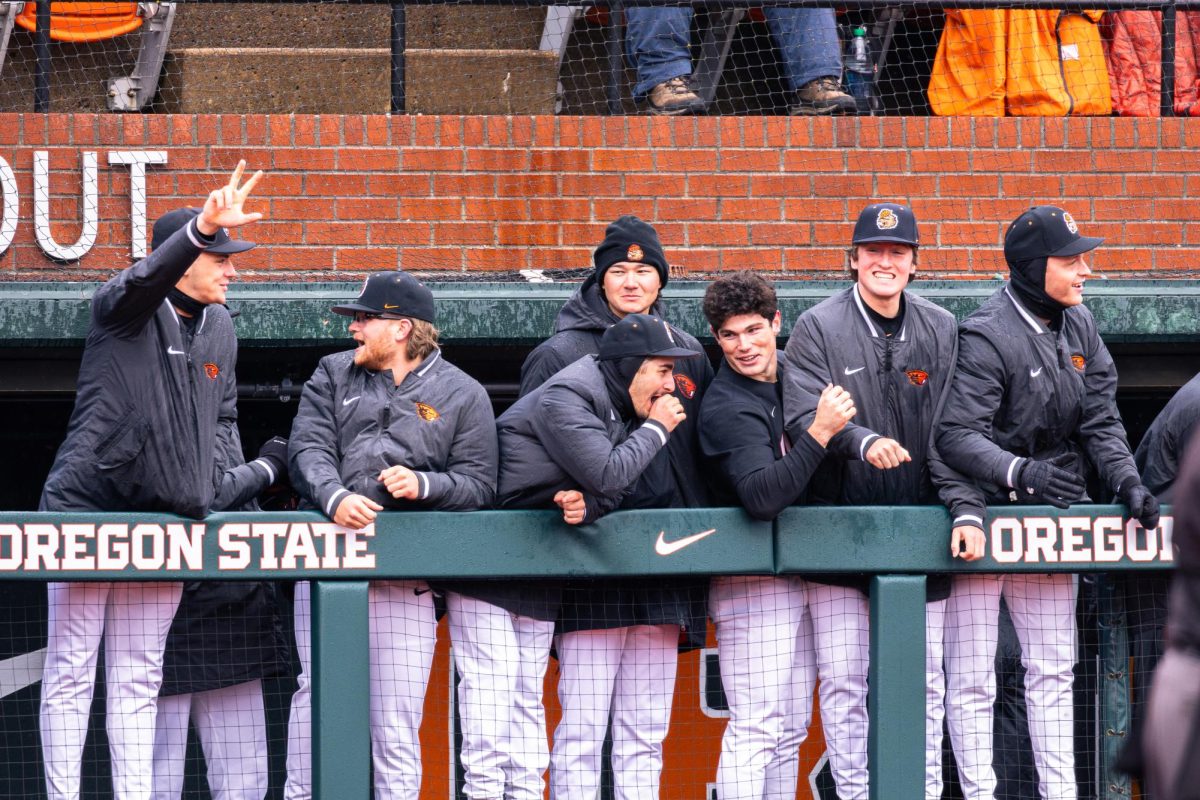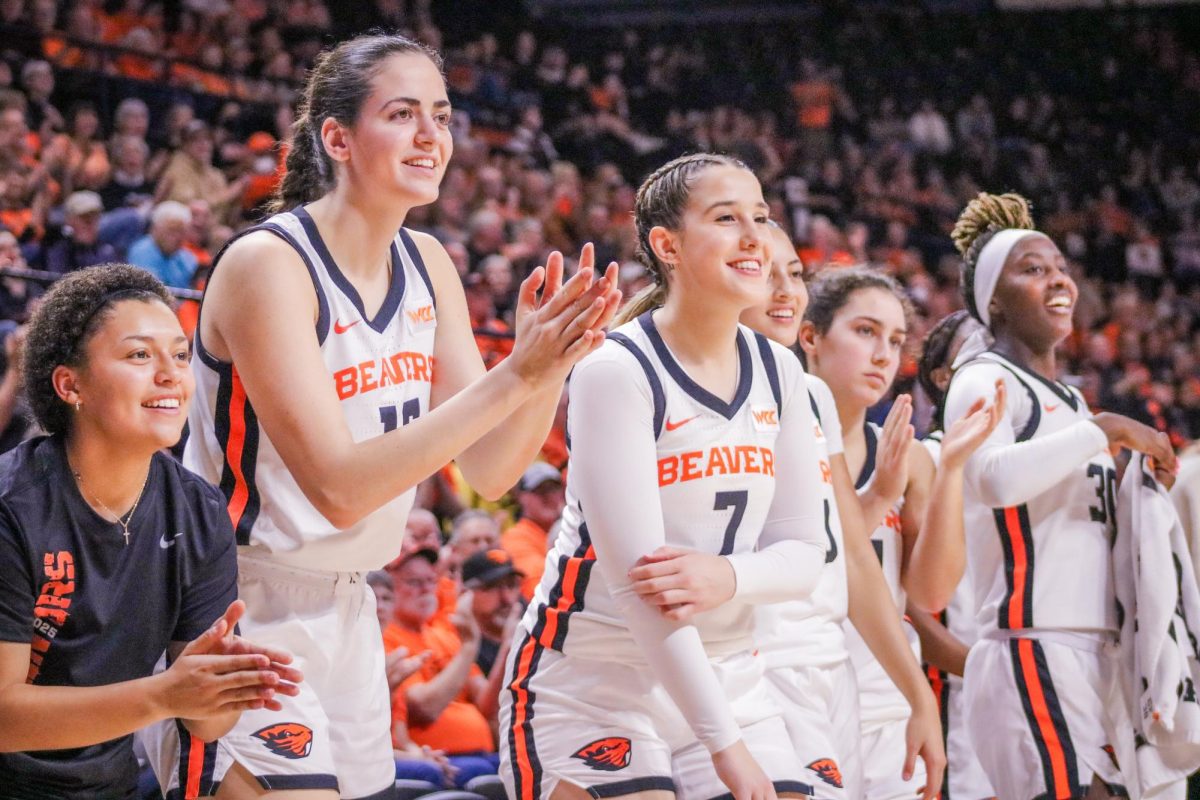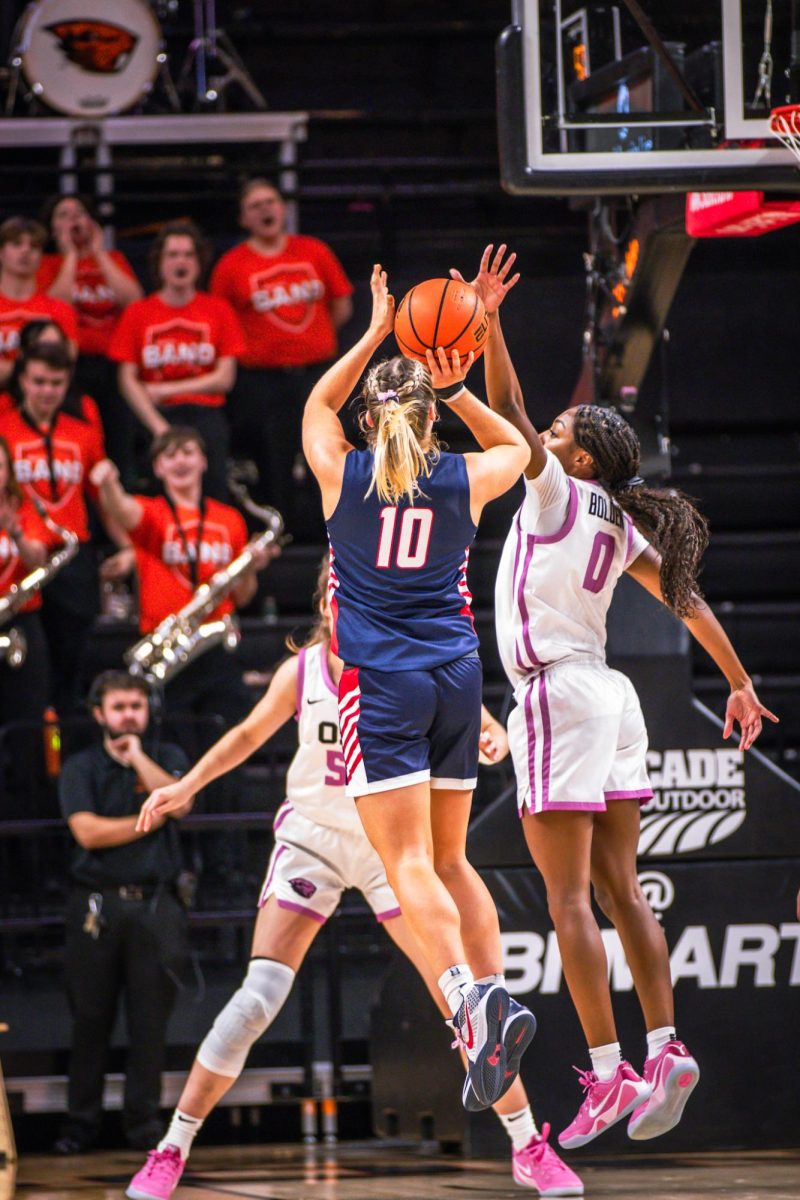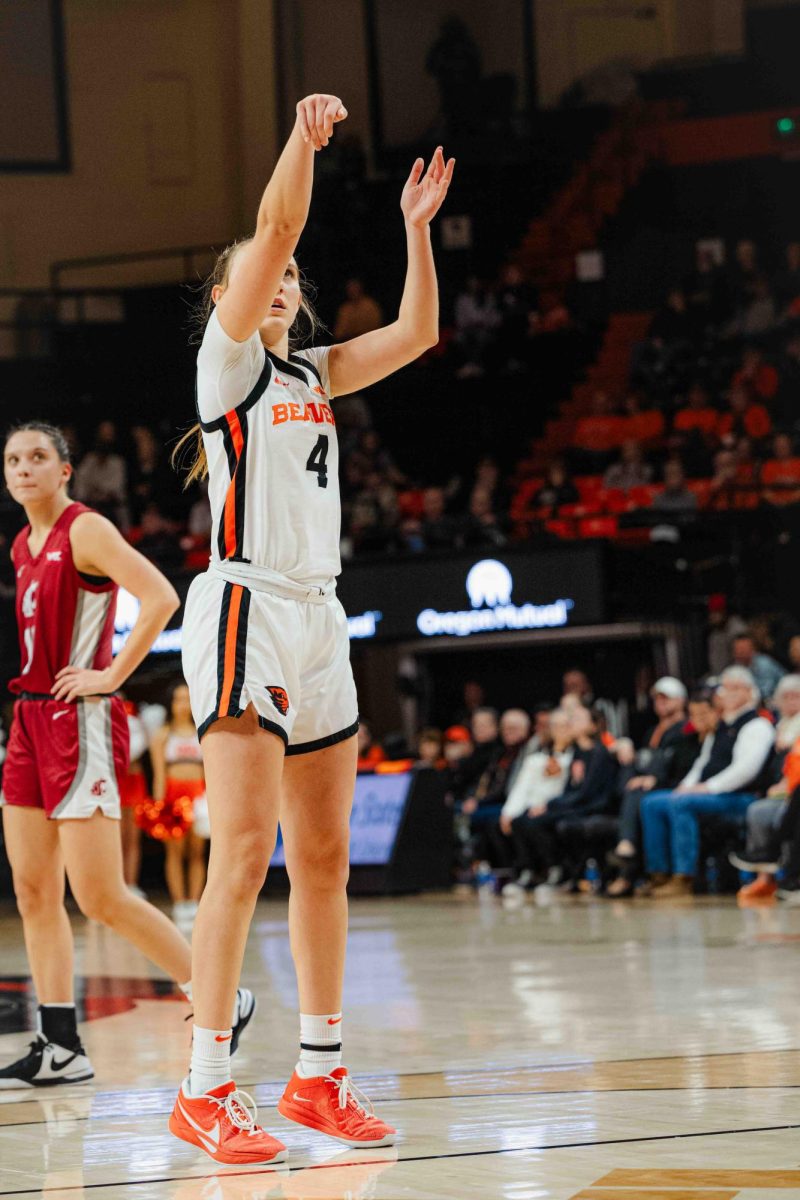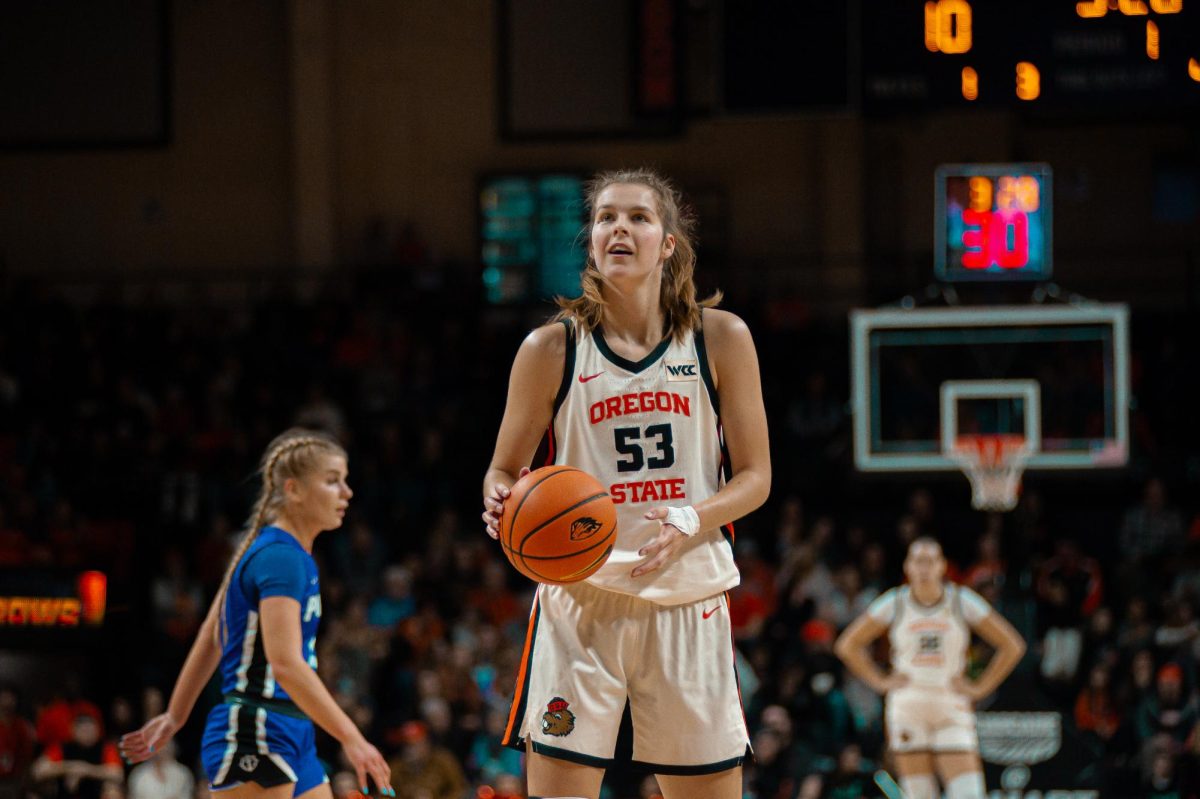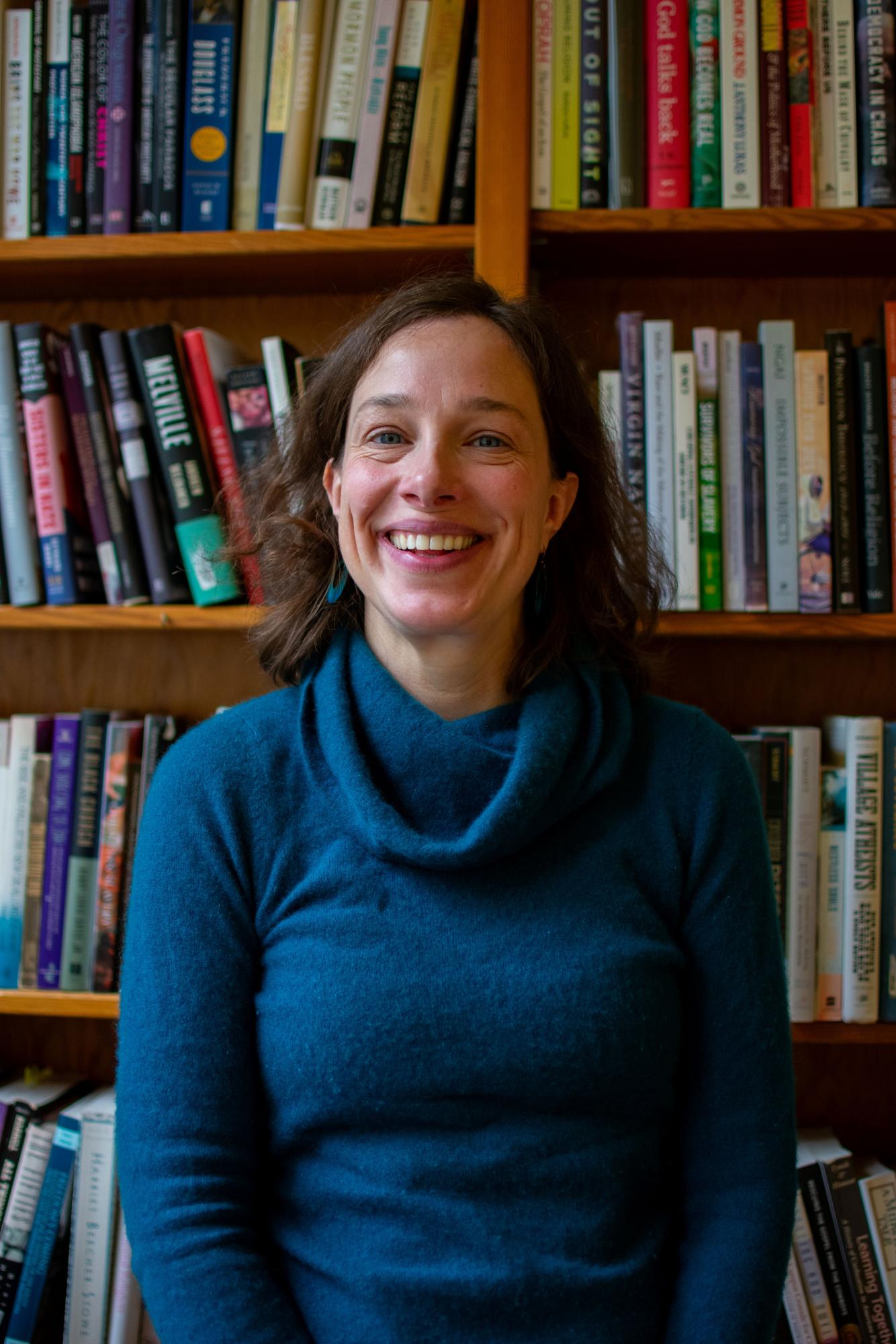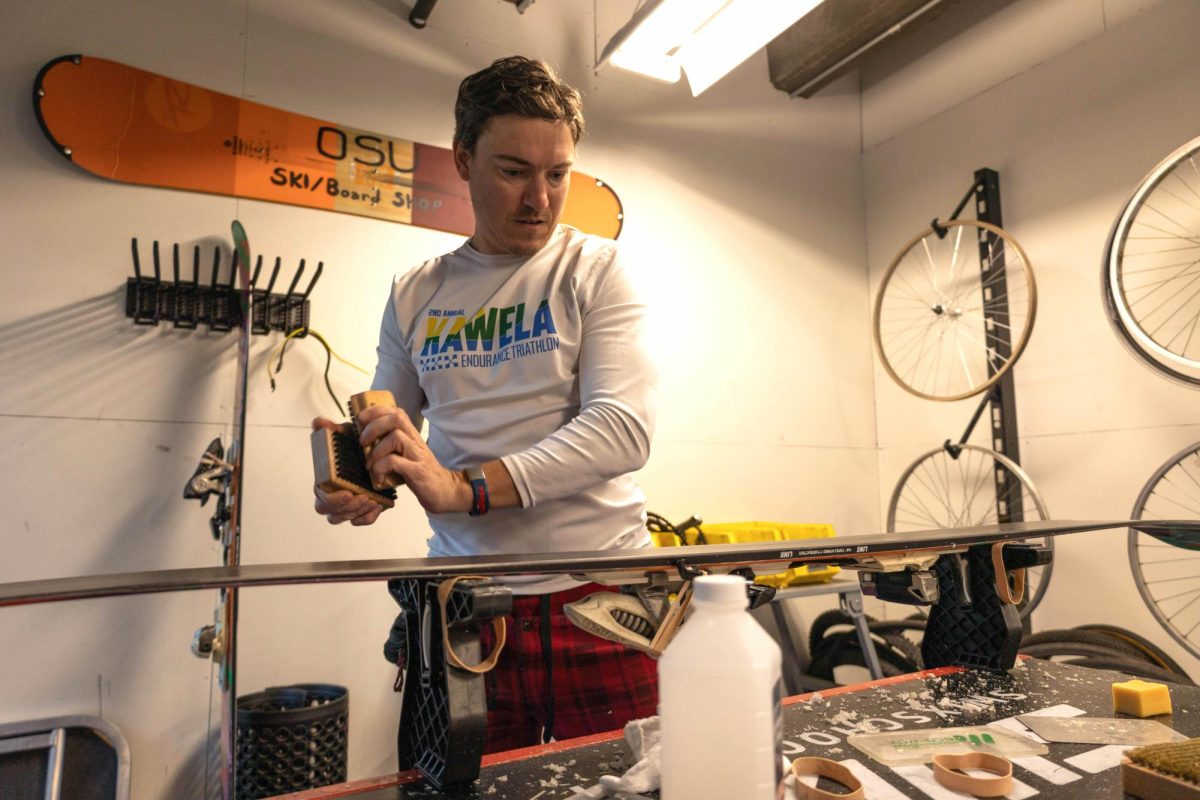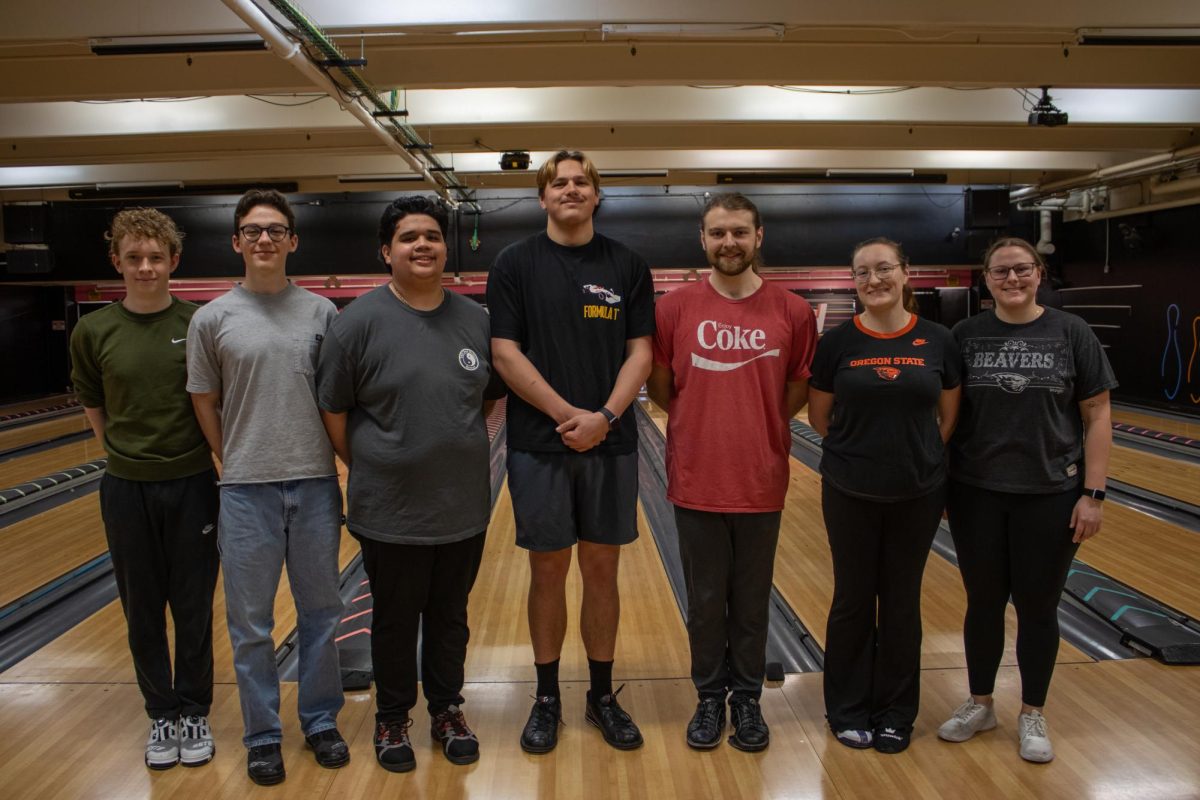Imagine you’re an expert in a career, yet you’re not associated with it at all. You’re devoted to your line of work and passionate about its teachings, though you never incorporate it into your personal life.
This is the case for agnostic Eliza Barstow, a senior instructor and associate director of religious studies at Oregon State University is particularly intrigued by how religion helps people and how it’s always changing, never “static.”
Although Barstow enjoys teaching religion, she describes herself as agonistic. She continues to question her beliefs, even though she leans towards atheism. She says her brain isn’t “wired” to fit a certain religion.
“(Religion) seems so great for a lot of people,” Barstow said. “I am a little bit envious of people who can comfortably fit within a religion because it just doesn’t work for me, but I totally respect it.”
Barstow has worked for OSU since 2016, and worked for Ohio State University before that. She’s currently teaching United States religion and an online class on U.S. and white supremacy and white nationalism.
Growing up, Barstow dabbled in religious concepts during middle and high school, particularly Liberal Protestantism.
According to the Dialogue Institute, a peer-reviewed Journal of Ecumencial Studies, Liberal Protestantism is an adaptation of Christianity that incorporates modernized ideals of science and knowledge.
“Many religious people see the world through both religious and scientific perspectives, and these are not always at odds; sometimes they are very much complimentary,” she said, listing off branches of Judaism, Buddhism, Hinduism, Christianity and Islam as examples.
Barstow decided to stray from the church as she didn’t believe some of the deeper theological concepts being discussed, though she still found them interesting to learn about. Instead she found answers through science and finds scientific ideas compelling, such as evolution and astronomy.
As for afterlife, Barstow doesn’t really believe in it, but finds afterlife interpretations appealing, as well as terrifying.
“I find it all terrifying,” Barstow said. “Maybe it’s the infinite that’s terrifying, like you’re going to Heaven or Hell infinitely … and reincarnation, the length of time you’re in that (cycle) and the number of lives you would have, would be utterly miserable.”
Barstow isn’t sure if fear keeps her away from accepting the afterlife, but the idea overall just doesn’t speak to her.
“Once when I was a kid, I did ask if our pets would go to Heaven,” Barstow said, chuckling as it’s a typical question to ask as a kid. “So when a minister told me ‘no,’ I wasn’t so sure about that.”
Though Barstow doesn’t believe in some of these concepts herself, she doesn’t promote agnosticism among students. Within the religious studies department, Barstow said OSU’s professors hold a range of different beliefs, and her colleagues don’t promote religion either.
“We’re all scholarly about it,” Barstow said. “And I think it’s great we come from different perspectives.”
When asked if there were any subjects that make teaching religion difficult due to her beliefs, Barstow said occasionally there are a few topics that don’t make her feel as comfortable to talk about.
“There are (religious) groups where the ideology seems more harmful and I do struggle slightly talking about it and guiding conversations sometimes,” Barstow said.
In terms of what Barstow does enjoy teaching, she finds the diversity in various forms of Protestantism in the U.S. fascinating. She also finds religion intriguing as it can help people cheat community norms.
“I’m particularly interested in people’s experiences when they leave religion because community is such a big part of it,” Barstow said. “Some people find it liberating to leave but sometimes liberation is combined with a profound sense of loss because they lost a part of their community.”
She noted the most satisfying classroom conversations are those discussing tensions between religious commitments and various civic laws.
“A (discussion) example would be Oregon’s attempt to ban Catholic schools – a law backed up by the Ku Klux Klan in the 1920s – and the Supreme Court’s decision to overturn the law and protect parental choice when it comes to education,” Barstow said.
Other areas that make teaching worthwhile for Barstow include stimulating students with new ideas. She added that students get partially excited when talking about Scientology.
“I’m awfully excited when we have people majoring in engineering or math who find a class so exciting that they decide to minor or double major (in our department),” Barstow said. “They see that this is something that’s actually totally useful for living in the world.”
Barstow plans on continuing to excite students with new ideas, as she hopes to be at OSU for another 20 or 30 years.
“I feel fortunate to be here now and have no desire to leave,” Barstow said.











